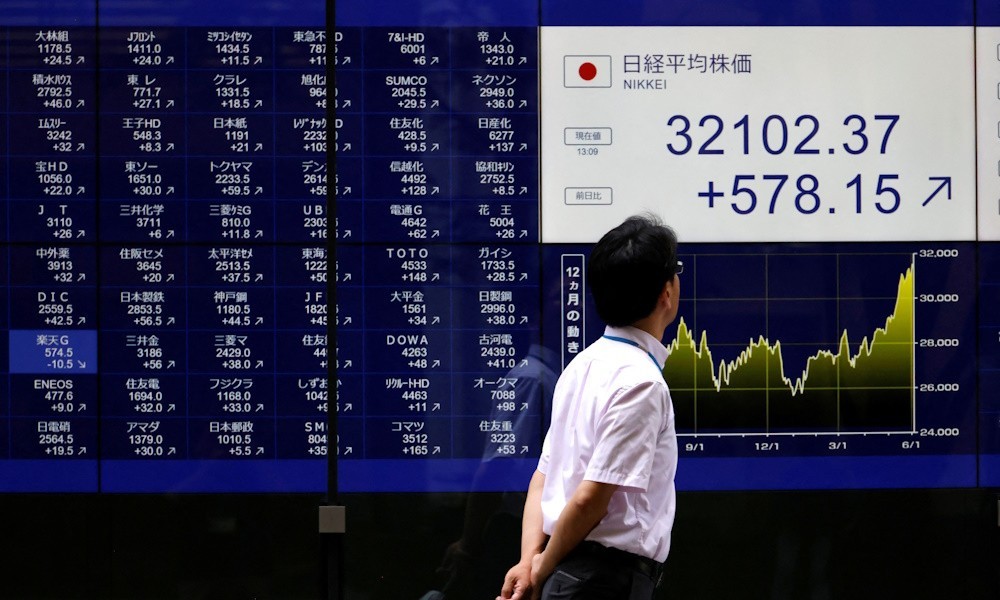Stock market in Japan is booming

The stock market in Japan is expanding rapidly. There are other factors to consider, not just the weak yen. Does a weak currency benefit Japan’s stock market? It’s a complex situation.
Traditionally, a decrease in the value of the yen is viewed as a positive development for Japanese stocks, as it tends to enhance the competitiveness of the country’s exports. And this remains true to a certain degree. According to Bank of America, a significant majority of the companies in the Topix index are involved in exporting. According to an expert in the field, a slight increase in the yen-to-dollar exchange rate could potentially result in a 0.5% increase in operating profit for companies in the Topix 500, a stock index that includes the largest Japanese companies. Toyota and Honda recently announced their highest-ever profits for the fiscal year ending in March, which were partially attributed to the favorable exchange rate of the yen.
However, the recent significant decline in the currency does not seem to have had a positive impact on the stock market. The Topix index has experienced a 1.5% decline since the end of March, despite the significant depreciation of the yen. In April, the yen briefly reached a level of 160 to the dollar before the Japanese government took action to stabilize it. The current exchange rate is 156 against the dollar, which represents a decline of almost 10% since the start of the year.
If the yen were to depreciate further, which it did by 4% against the dollar in April alone, it would present two risks to the market.
Firstly, the potential consequence of this situation is an increase in the costs of imports, particularly essential items like food and energy. This, in turn, could have a negative impact on the growth of real wages and consumer spending. According to J.P. Morgan’s analysis, a depreciation of the yen would have a positive impact on the stock market, but only up to a certain point. Once the yen reaches a level of 157 yen to the dollar, the expected pay rises would be offset by inflation, resulting in a break-even situation. In March, Japan experienced a decline of 2.5% in real wages compared to the previous year. However, there is optimism for a potential increase later this year, as indicated by the outcomes of this year’s annual salary negotiations. Companies that primarily operate within the country would probably experience more difficulties compared to those that export their products, due to the increasing expenses and the potential negative impact on consumer spending.
Foreign investors have become increasingly involved in the Japanese stock market, which also brings about currency risk. The Topix index has experienced a 16% increase in local terms this year, while the gain in dollars has been limited to 5%. Investors who do not hedge their currency exposure may be cautious about entering the market due to the associated risks.
The factors that contributed to the Nikkei 225 index reaching a new high earlier this year after 34 years, such as the positive impact of corporate governance improvements and higher returns for shareholders, continue to remain in place. However, do not anticipate any extra stimulus from a depreciating yen.










